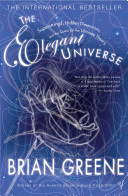Example of Relativity
Imagine that George, who is wearing a spacesuit with a small, red flashing light, is floating in the absolute darkness of completely empty space, far away from any planets, stars, or galaxies. From George's perspective, he is completely stationary, engulfed in the uniform, still blackness of the cosmos. Off in the distance, George catches sight of a tiny, green flashing light that appears to be coming closer and closer. Finally, it gets close enough for George to see that the light is attached to the spacesuit of another spacedweller, Gracie, who is slowly floating by. She waves as she passes, as does George, and she recedes into the distance. This story can be told with equal validity from Gracie's perspective. It begins in the same manner with Gracie completely alone in the immense still darkness of outer space. Off in the distance, Gracie sees a red flashing light, which appears to be coming closer and closer. Finally, it gets close enough for Gracie to see that it is attached to the spacesuit of another being, George, who is slowly floating by. He waves as he passes, as does Gracie, and he recedes into the distance.
The two stories describe one and the same situation from two distinct but equally valid points of view. Each observer feels stationary and perceives the other as moving. Each perspective is understandable and justifiable. As there is symmetry between the two space-dwellers, there is, on quite fundamental grounds, no way of saying one perspective is "right" and the other "wrong." Each perspective has an equal claim on truth.
This example captures the meaning of the principle of relativity: The concept of motion is relative. We can speak about the motion of an object, but only relative to or by comparison with another. There is thus no meaning to the statement "George is traveling at 10 miles per hour," as we have not specified any other object for comparison. There is meaning to the statement "George is traveling at 10 miles per hour past Gracie," as we have now specified Gracie as the benchmark. As our example shows, this last statement is completely equivalent to "Gracie is traveling at 10 miles per hour past George (in the opposite direction)." In other words, there is no "absolute" notion of motion. Motion is relative.
Notes:
All motion is relative.
Folksonomies: relativity illustration example
Taxonomies:
/sports/martial arts/judo (0.629668)
/science/physics/space and astronomy (0.447547)
/law, govt and politics/law enforcement/police (0.346328)
Keywords:
red flashing light (0.906600 (neutral:0.000000)), Gracie (0.825605 (negative:-0.139222)), George (0.703025 (positive:0.446422)), green flashing light (0.508859 (neutral:0.000000)), equally valid points (0.493803 (positive:0.531393)), perspective (0.394197 (positive:0.750629)), motion (0.363797 (negative:-0.376690)), distance (0.341858 (positive:0.500549)), absolute darkness (0.334200 (positive:0.271762)), equal validity (0.328534 (neutral:0.000000)), Relativity All motion (0.320865 (negative:-0.335632)), outer space (0.313350 (positive:0.530730)), opposite direction (0.308981 (neutral:0.000000)), fundamental grounds (0.308396 (positive:0.360363)), equal claim (0.307280 (neutral:0.000000)), example (0.277468 (positive:0.187172)), spacesuit (0.273657 (positive:0.420424)), statement (0.225641 (negative:-0.316896)), miles (0.223402 (neutral:0.000000))
Entities:
Gracie:Person (0.857942 (negative:-0.069611)), George:Person (0.732697 (positive:0.446422)), 10 miles per hour:Quantity (0.732697 (neutral:0.000000))
Concepts:
Meaning of life (0.950701): dbpedia | freebase | yago
Light (0.782103): dbpedia | freebase | opencyc
Vacuum (0.703045): dbpedia | freebase | opencyc
Debut albums (0.691549): dbpedia
Concepts in metaphysics (0.676734): dbpedia
Relativity (0.666763): dbpedia
Classical mechanics (0.616050): dbpedia | freebase
Optics (0.602421): dbpedia | freebase | opencyc





